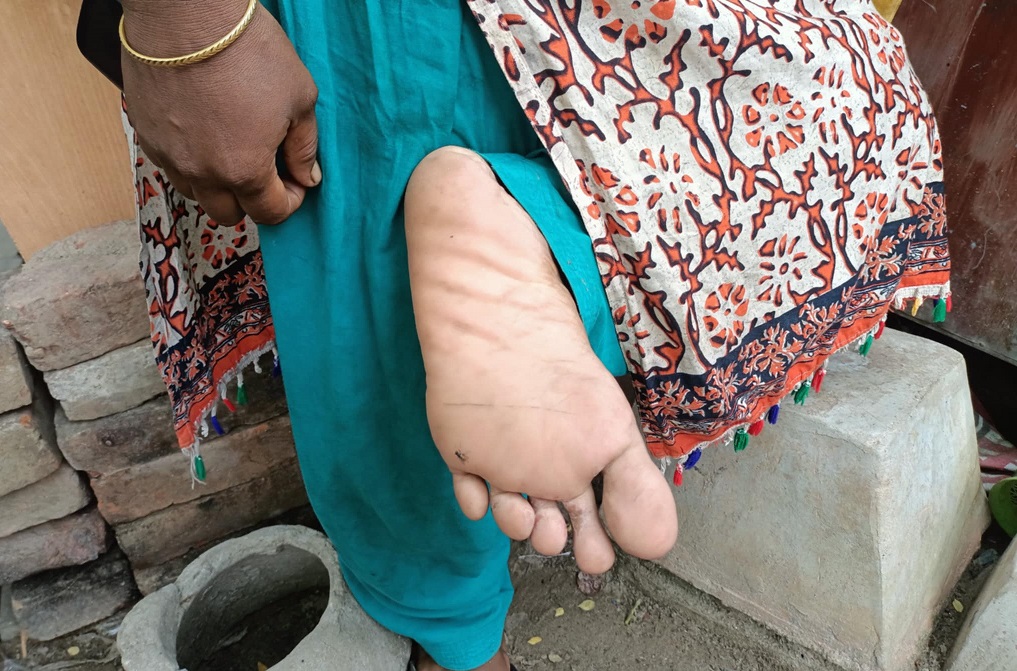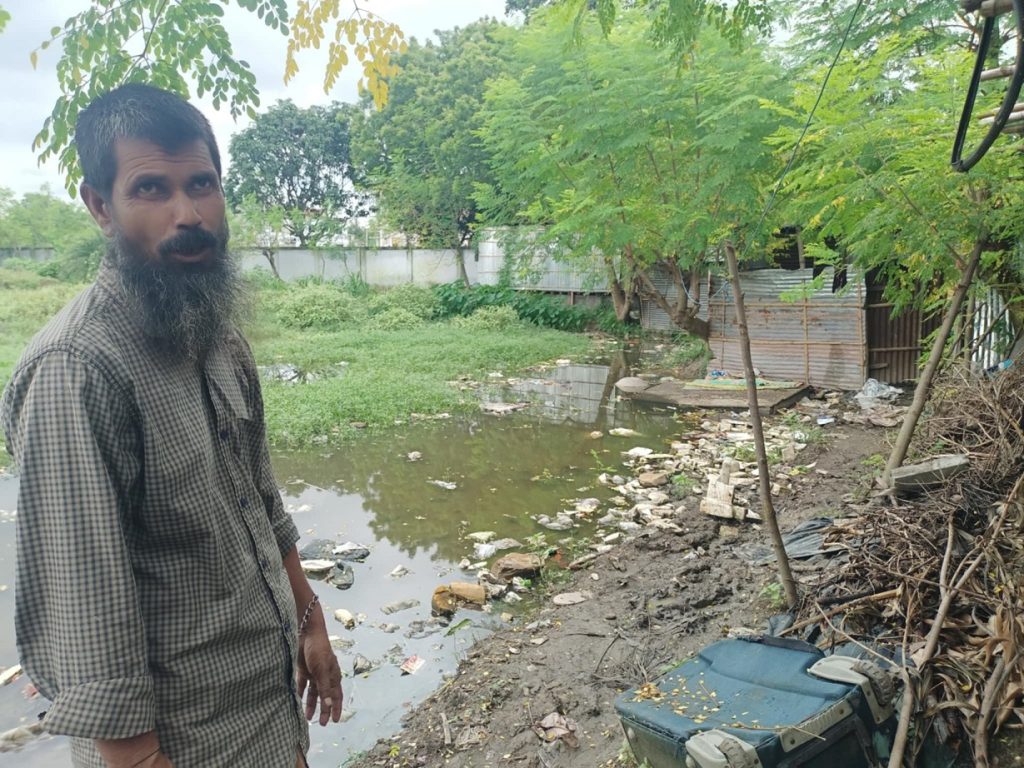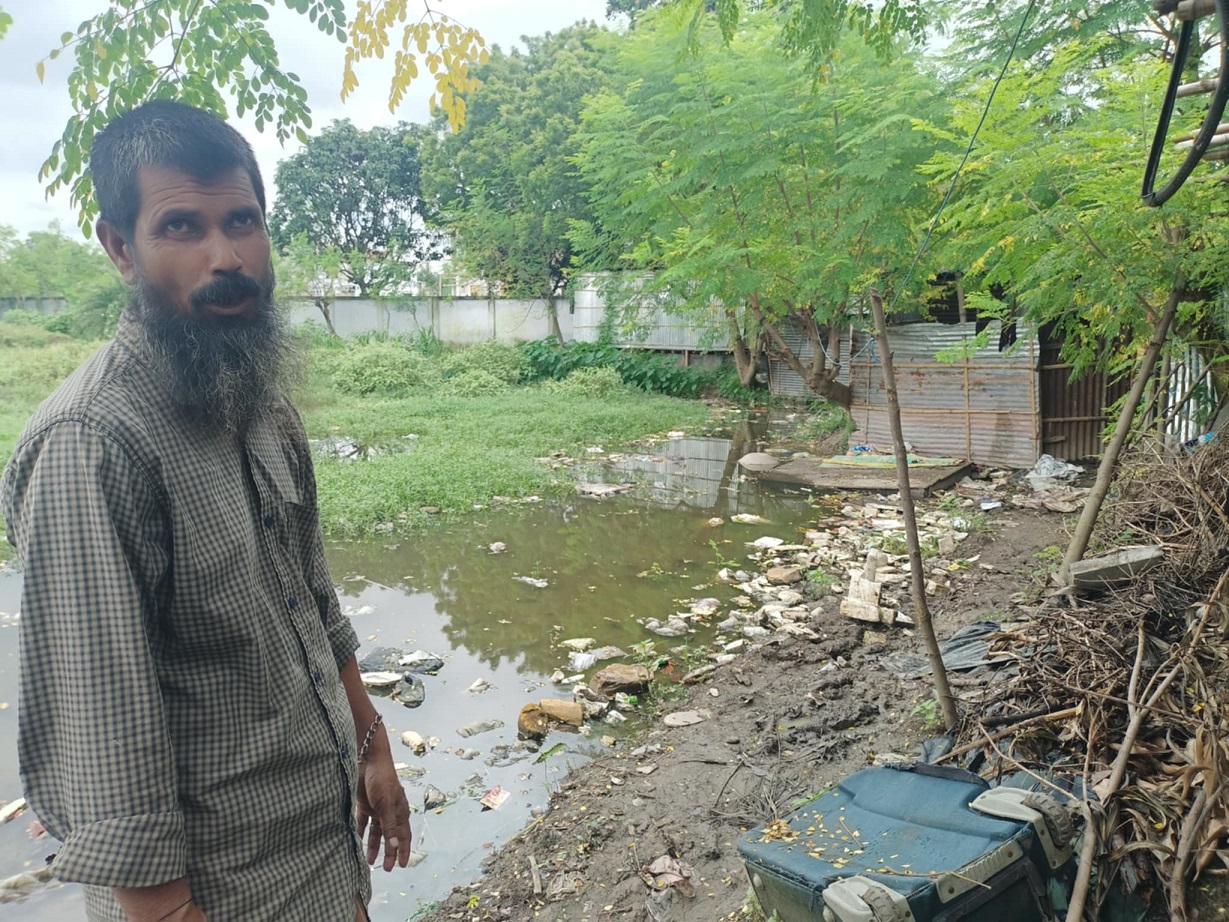By Tohura Khatun Lily from Rajshahi
Thousands of urban poor have been living in the Namovhadra slum, located beside the railway lines in Rajshahi city for a long time. Built on railway land, this densely populated slum remains deprived of basic civic services. The absence of a proper drainage system has made their life increasingly unbearable..

The recent spell of continuous rain has caused severe waterlogging in the slum. The stagnant, dirty, foul-smelling water has turned their residence into a permanent pond. The lack of drainage system in place, rainwater accumulates and lingers for days, posing serious health risks, skin diseases, and chances of accidents. In one photo, a woman is seen suffering from a leg wound caused by walking through the dirty water. The residence experienced this in their day to day life!
Most of the urban poor are daily wage earners, domestic workers, rickshaw pullers, and small traders. They live from hand-to-mouth and struggle to survive every day. But when their homes are flooded, survival becomes even more challenging. While sharing his experience Md. Sikandar said, “Even a little rain causes water to stagnate. The waste and filth cause sores on our feet. No one sees our suffering. If the government, youth groups, and NGOs work together, perhaps a solution could be found.”
The polluted water, mixed with decaying garbage, has created a highly unhygienic environment. Children wade through dirty water to get to school and often develop skin infections. The elderly face difficulties moving, and women report feeling unsafe stepping outside.

A resident named Saji said, “My feet have developed sores from walking through this filthy water. Even after taking medicine from the pharmacy, it has not healed yet. I cannot afford to consult a doctor.”
In response to this crisis, BARCIK has been playing an active role in the slum are. The organization mobilizes the urban poor to identify the problems, raise awareness, and help to build linkages with government authorities. Solving such an environmental crisis demands not only a humanitarian approach but also institutional support. Organizing the community and bringing the issue to the attention of local administration is a crucial step toward lasting change. With the facilitation support from BARCIK the urban poor in the area have urged the state to take concrete initiative to solve the very problem they face in their day to day life.

